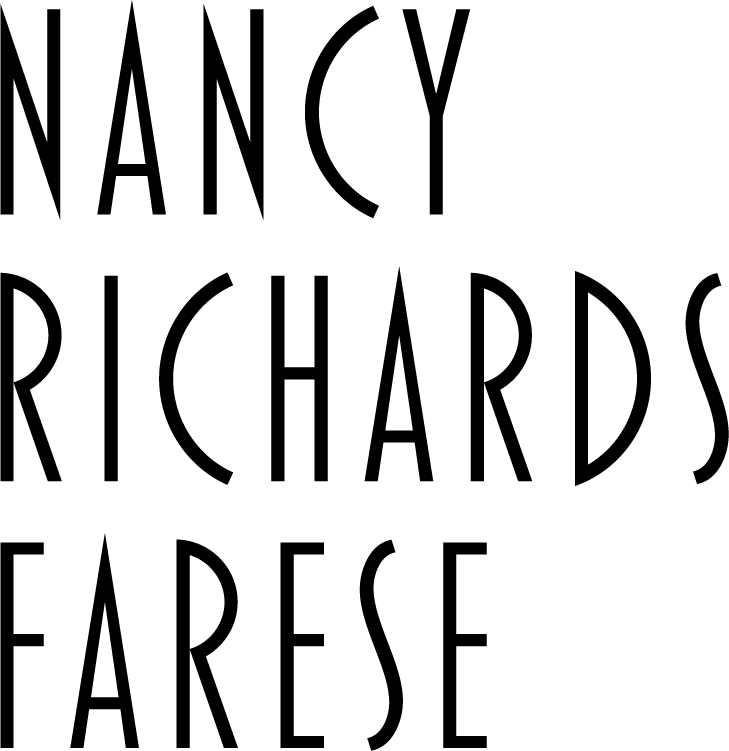Now Available
I Still Speak Southern in My Head
by Nancy Richards Farese
Shortlisted for the Lucie Foundation Photo Book Prize.
Limited Supply
Now in the Collections of:
Vanderbilt University Jean and Alexander Heard Libraries
Davidson College E.H. Little Library
Georgia Institute of Technology Libraries
University of West Georgia Ingram Library
Emory University Woodruff Library
The book I Still Speak Southern in my Head by Nancy Richards Farese draws from her traveling exhibition ADD|MIX|FOLD, which will be at the Southeast Center for Photography (SC), the Mary G. Hardin Center for Cultural Arts (AL) and other venues in 2025. Using photography, collage, and embroidery, Farese's visual memoir of growing up in the South in the 60s re-examines a complicated legacy of historical segregation and traditional femininity through the framework of familial relationships with place and home. This book questions the stories we tell ourselves as we search to make meaning of our lives.
*
This body of work was born in the early weeks of the COVID pandemic of 2020, and made in the distinct period that followed, where we lived in a series of colliding catastrophes and repairs—political, social, emotional—that shaped our everyday lives. This work is a product of turbulence.
As my family retreated to ride out together whatever the virus would bring, my son suggested we find something to do with our hands—knit, doodle, shell peas. I began to sew on an old photo of my Gramma Richards celebrating a first-place win in the Giant Cabbage Contest at the 1952 Georgia State Fair. My girlhood embroidery skills were surprisingly intact.
Meanwhile, chaos in the world grew louder and more ominous. When Joe Biden nominated Kamala Harris as his Vice President and The New York Times exulted “Ambition Has Always Been ‘Ladylike,’” the image of Gramma Richards was suddenly a story about ambition and hope in us all—the raw, constant creativity and drive of everyday women. But this old family photograph was also now an artifact, an art object, a tangible piece of evidence.
With our democracy teetering, the pandemic seeding fear and anxiety, and violent racial reckoning on our streets after the murder of George Floyd, it seemed to me that perhaps our ways of documenting the world no longer worked. What does it mean that we don’t have artifacts—printed photographs, letters, even newspapers—to document how we lived, adapted, and held onto ourselves in these perilous times? What will we show the grandchildren?
I began to sew, bead, paint, and quilt on other family photographs to create things to hold onto as personal anchors. Tactile by design, the dimensional nature of the work suggests both assembly and exclusion. Stitching is, after all, our most ancient form of repair. It is derived from “female crafts,” those traditional languages which have always been used to create and subvert, and calls to mind the rich tradition of makers and quilters who have used the needle to weave stories and challenge authority: the quilters of Gee's Bend, Faith Ringgold, Bisa Butler. A direct line of thread connects those celebrated American quilters to the sewing circles in Afghanistan today where women sit whispering Shakespearian sonnets forbidden to them by the men who make their laws.
This exhibition of this work is titled, ADD|MIX|FOLD, which comes from a family pound cake recipe. I am “sifting” through the historical legacy I inherited, helping to discern what to hold onto and what to let go. I’ve heard it said that the opportunity in a synthetic world is to be undeniably human. The work is intentionally tactile and handcrafted; it is undeniably human.
Available Now (Limited Supply)
Featured Product
Potential Space: A Serious Look at Child’s Play
by Nancy Richards Farese
Play as essential for personal and social therapy: portraits of the resilience of children
In 2017, award-winning Boston- and San Francisco–based photographer Nancy Farese visited Bangladesh to photograph the Rohingya refugee crisis. While she saw firsthand the most violent tendencies of humankind, she also bore witness to endless displays of perseverance from the youngest members of these communities. On the edge of every frame she saw children at play, adapting to their circumstances to socialize and heal with one another.
This photobook documents children’s play across 14 countries, including Haiti, Cuba, Burkina Faso, Jordan and the US, in full-color photographs. Farese invites us to consider how this universal activity is threatened by the unrelenting forces of technology, consumerism and even overparenting. Featuring a foreword by New York Times staff photographer James Estrin, Potential Space offers a global view of a mundane activity that powerfully shapes who we are, both as individuals and as a society.
Buy Potential Space on Amazon, Artbook, or for a signed copy buy online at my website.
Limited Edition Prints
Archival pigment print with handkerchief and thread
Signed on verso
16 x 20 inches
Unique hand-crafted edition of 3
Archival pigment print with pen
Signed on verso
19 x 13 inches
Unique hand-crafted edition of 3
Archival pigment print with thread and beading
Signed on verso
13 x 19 inches
Unique hand-crafted edition of 3
Archival pigment print
Signed on verso
24 x 20 inches
Edition of 7
Archival pigment print
Signed on verso
20 x 20 inches
Edition of 7
Media contact for Nancy Farese is Andrea Smith, andreasmith202@gmail.com
Email Andrea to secure a selection of images for reproduction and arrange an interview with the author.







